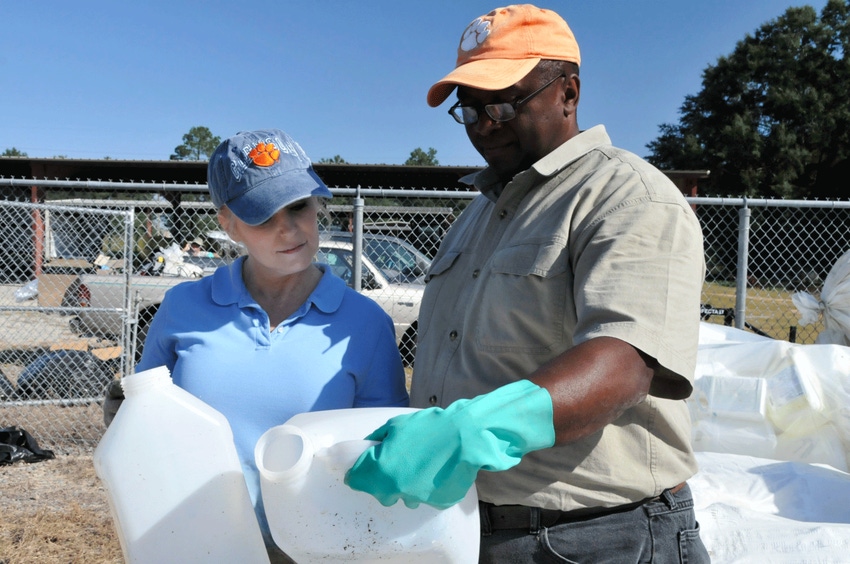October 6, 2016

Homeowners, pesticide applicators and businesses should take steps to protect themselves if hurricane flooding and storm surges inundate pesticide storage sites.
Flooding could cause pesticide containers to leak or spill, contaminating surrounding standing water, say experts with Clemson University’s South Carolina Department of Pesticide Regulation.
“It’s imperative that people wear appropriate personal protective gear to avoid exposure and ensure that skin doesn’t come in contact with contaminated water,” said Ryan Okey, pesticide program chief.
Monitoring water levels is key to evaluating damage. If pesticide containers have been damaged by minimal flooding, it might be possible to contain and clean-up the pesticide spill. Moderate to major flooding might mean containment and clean-up is impossible and should be reported to hazardous waste representatives with the Environmental Protection Agency.
“Knowing what pesticides have leaked is extremely important to coming up with a cleanup strategy,” Okey said. “It’s another reason people must properly label and inventory stored pesticides.”
Standard guidelines for handling pesticide spills include:
Use appropriate personal protective equipment, such as chemical-resistant gloves, rubber boots, chemical-resistant aprons and protective eyewear. A respirator might also be necessary.
Restore containers to their upright positions, close leaking valves and hoses and use secondary containers to contain leaking solutions. Pesticide bags that have been broken or soaked must be carefully placed into secondary containers.
Contain the spread of chemicals by creating “dams” of absorbent material, such as soil, sand, sawdust, peat moss, rags, paper towels or cat litter.
If possible, use the dams to divert contaminated liquids from ponds, streams and storm sewers.
Use absorbent materials on pavement and other impervious surfaces.
Place damaged pesticide containers, contaminated materials and materials used for cleanup into secure plastic bags and dispose of them properly.
Contact the South Carolina Department of Agriculture for waste-recovery collection dates and times. The SCDA will hold a collection for Lexington/Richland County 9 a.m.-2 p.m. Oct. 15 at Irmo High School, 6671 St. Andrews Road, Irmo. The South Carolina Department of Health and Environmental Control offers pesticide handling and disposal tips.
You May Also Like




